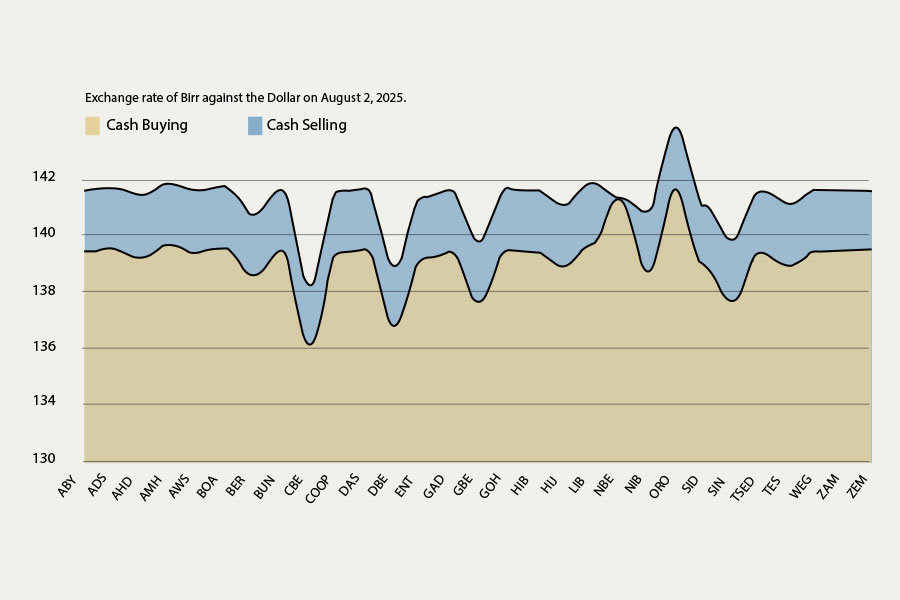
Editorial | Jul 27,2024
A close friend introduced me to an application called "Hamster Kombat," which at first seemed like any other online game. With simple graphics reminiscent of classic games like Sonic X or Super Mario, it initially appeared unremarkable. However, my IT-savvy friend explained its appeal. The game belongs to a new genre based on the concept of "blockchains," a distributed database that maintains a continuously growing list of ordered records called blocks.
Leaving the technical details to experts, the game allows players to earn points that can be converted into cryptocurrency and then into monetary rewards. Hamster Kombat has captivated many young people in Addis Abeba, with YouTubers and podcasters providing advice on boosting earnings. Attempts to understand the details led me to the world of Bitcoin and cryptocurrency, revealing how it disrupts the financial world. According to the TechTalk show hosted by Solomon Kassa, the cryptocurrency metaverse is predicted to revolutionize finance, much like the internet transformed data and business.
Some platforms offer NFTs (non-fungible tokens), recorded on a blockchain, certifying ownership and authenticity. Data miners ensure the integrity of the metaverse, facilitating smooth crypto transactions. Despite the allure and glamour promoted by marketers, commentators caution about the time required to recover value and the large computing capabilities needed. Other risks include cryptocurrency volatility, Ponzi scheme-like structures, and hackers who can steal earnings.
A recent report highlighted that the Philippines contributes to about a third of all global cryptocurrency-based games. Cybercafes in cities offer full-time gaming jobs where players spend their days at PC stations, earning monetary rewards. Some youths have abandoned traditional jobs, such as farming, to seek virtual fortunes.
The elusive virtual world presents new desires for the younger generation. Many, including myself, feel increasingly illiterate about this new reality that will define the future. The enigmatic Satoshi Nakamoto, credited with inventing Bitcoin, remains a mystery. Despite the initial scepticism, cryptocurrencies have entered the mainstream, with CNN's stock market reports now including Bitcoin valuations. While the world is changing rapidly, many fundamental human experiences remain constant. The pursuit of happiness, the struggle to balance aspirations with reality, and the impact of social inequality are enduring challenges.
Life is like a crazy speedway. It is hard to know what is important when there is so much noise. All the information out there can mess with our ideas of success. We end up dreaming too big and forgetting what we can do. In the end, we are limited by time and what we have. Finding the right mix between dreaming and acting is key.
People give up a lot to chase dreams that are just too big. I believe it is smart to accept life as it is and be thankful. But these days, everyone seems lost in a world of make-believe. While dreaming big is good, not reaching those goals opens the door to an unhappy life.
The World Happiness Index report presents a skewed view that perpetuates an already twisted worldview based on socioeconomic and material factors. According to the report, richer countries tend to be happier. But that does not mean poor countries are always sad. Although safety and resources contribute to happiness, money is not the only thing that matters when it comes to contentment.
Life is a dazzling buffet of possibilities, but our plates are small. Time and place set our table limits. While we dream of endless courses, reality serves smaller portions. While success might seem like outpacing others, true fulfilment is a dish best seasoned with personal taste. What is a feast for one might be bland to another.
Humans are bottomless pits of wanting, always pushing for something better. This drive has led to progress. Imagine a world without that itch to explore or figure things out – we would probably still be living in caves. When life gets tough, humans have a knack for finding clever workarounds. As the old saying goes, problems force us to be creative.
Our world has exploded with information, showing us things we never imagined. We are connected like never before, being part of stories instantly from across the globe. There is hardly a part of the world where compatriots have not set foot. It is like living in a never-ending highlight reel that can blur what is real. It is a big change from when foreigners were a rare sight. And it seems like everyone has travelled far and wide.
The introduction of new technologies, like personal computers and mobile phones, revolutionized the world. The Internet further transformed business and communication. Now, the crypto metaverse promises to disrupt finance, but its full potential remains to be seen. While technology undeniably makes life easier, it also creates new needs and desires, leaving many struggling to keep pace.
As French writer Jean-Baptiste Alphonse Karr observed, "the more things change, the more they stay the same," albeit more complicated and leaving much to be desired.
PUBLISHED ON
Jul 27,2024 [ VOL
25 , NO
1265]


Editorial | Jul 27,2024

Radar | Aug 26,2023


Fortune News | Apr 28,2024

Money Market Watch | Aug 17,2025

Verbatim | May 24,2025

In-Picture | Feb 03,2024

Fortune News | Aug 12,2023

In-Picture | Aug 04,2024

Radar | Jun 07,2025

Dec 22 , 2024 . By TIZITA SHEWAFERAW
Charged with transforming colossal state-owned enterprises into modern and competitiv...

Aug 18 , 2024 . By AKSAH ITALO
Although predictable Yonas Zerihun's job in the ride-hailing service is not immune to...

Jul 28 , 2024 . By TIZITA SHEWAFERAW
Unhabitual, perhaps too many, Samuel Gebreyohannes, 38, used to occasionally enjoy a couple of beers at breakfast. However, he recently swit...

Jul 13 , 2024 . By AKSAH ITALO
Investors who rely on tractors, trucks, and field vehicles for commuting, transporting commodities, and f...

Oct 25 , 2025
The regulatory machinery is on overdrive. In only two years, no fewer than 35 new pro...

Oct 18 , 2025
The political establishment, notably the ruling party and its top brass, has become p...

Oct 11 , 2025
Ladislas Farago, a roving Associated Press (AP) correspondent, arrived in Ethiopia in...

Oct 4 , 2025
Eyob Tekalegn (PhD) had been in the Governor's chair for only weeks when, on Septembe...